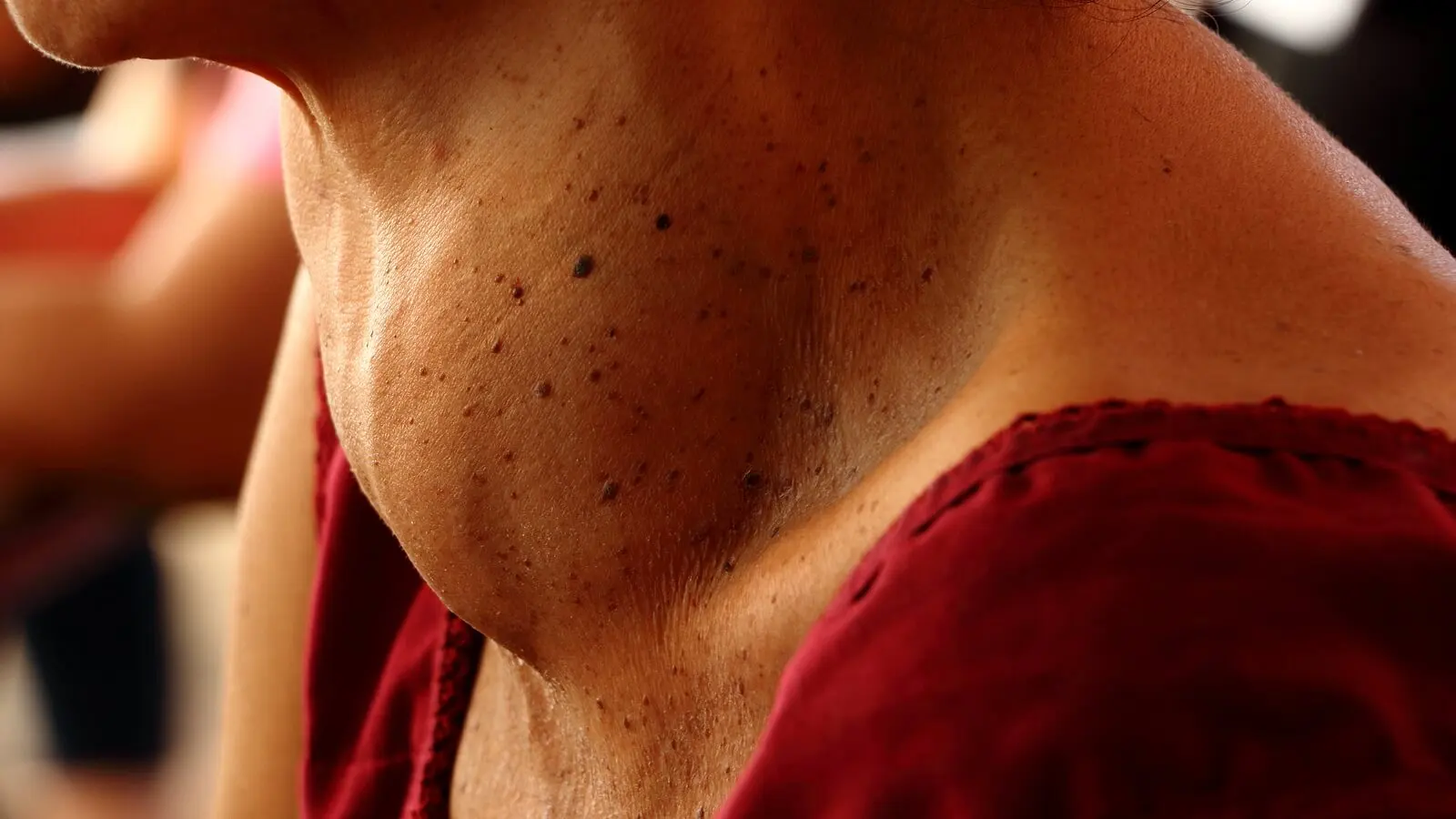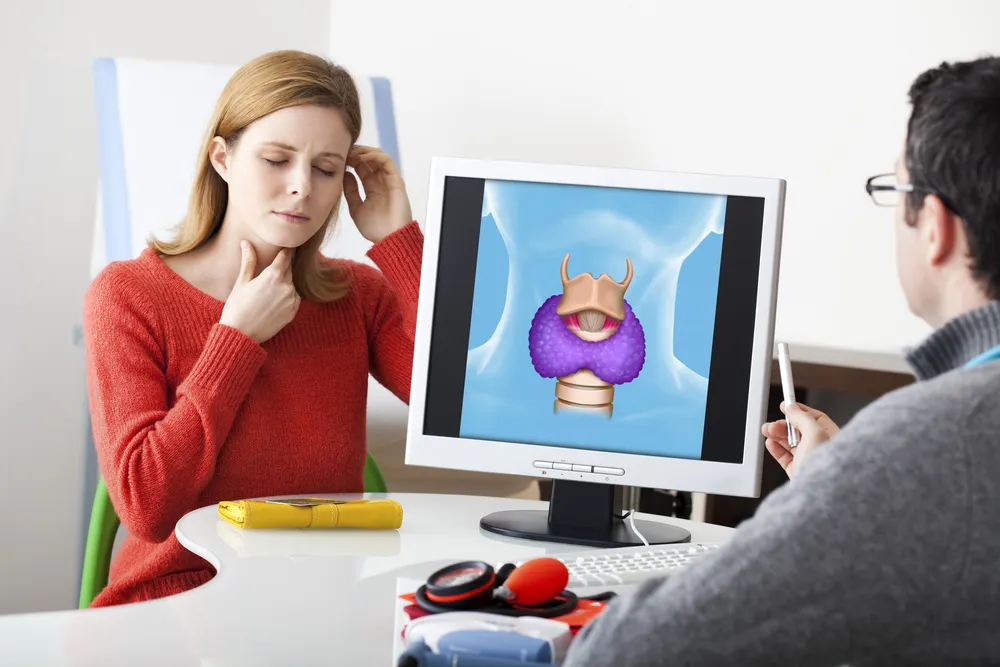Is It Possible to Live Without a Thyroid?


Reviewed and approved by the doctor Leonardo Biolatto
The thyroid is one of the most important glands in the body. It’s located at the base of the neck and is responsible for regulating many aspects of our metabolism. It is, therefore, an interesting question to ask whether it’s possible to live without a thyroid.
This gland performs its function by producing thyroid hormones, which act on almost every tissue in the body. For example, these hormones can increase heart rate, sweating, or even the utilization of nutrients.
Diseases of the thyroid gland are quite common. Everyone has heard of disorders such as hyperthyroidism, hypothyroidism, thyroid nodules, or even thyroid cancer. However, few people know the reality of these pathologies or how they’re treated.
In many cases, it’s necessary to remove the organ, through an operation called thyroidectomy. This means that the person will have to live without a thyroid. In this article, we explain why this operation is performed and whether it’s possible to lead a normal life after surgery.
Why would the thyroid need to be removed?

As we have already mentioned, this gland is responsible for regulating a large part of the metabolic reactions that occur in the body. For example, the body temperature, the development of the nervous system, or bone growth.
This means that thyroid hormones are essential from gestation onwards, so that the baby develops correctly. During the rest of our lives, they’re still necessary for survival.
However, many pathologies affect this gland and require its removal. This operation is called thyroidectomy, and is used to treat diseases such as:
- Thyroid nodules: These are small lumps that grow in the gland as a result of an abnormal proliferation of cells. Most of them are benign, but others are difficult to identify. Therefore, in many cases, the thyroid is removed because of the risk that they may be cancerous.
- Goiter: This consists of an enlargement of the gland. This enlargement is uncomfortable and unsightly, as it can cause difficulty in swallowing or breathing.
- Certain cases of hyperthyroidism: Those in which medical treatment isn’t sufficient to control the symptoms.
- Thyroid cancer: As we have just explained, most cases in which it’s decided to remove the thyroid are when it’s due to the risk of a cancerous process.
It should be noted that, on some occasions, partial thyroidectomies can be performed. In these cases, only part of the gland is removed. The other part can continue to function and produce hormones.

You might like to read: Honey and Nuts Remedy to Promote Thyroid Health
How do you live without a thyroid?
The truth is that you can’t live without a thyroid without extra help. For this purpose, thyroid hormones are used artificially. These hormones are necessary for life, and scientists have developed drugs that contain them in a synthetic form.
This laboratory substance replaces all the functions of the natural hormones. The most common form of administration is to take one tablet once a day, usually in the morning. Thanks to these drugs, it’s possible to live without a thyroid and in a completely normal way.
However, it’s necessary to monitor the concentration of these hormones, and this is carried out through blood tests.
On the other hand, it’s important to know that certain medications or products can alter the absorption of synthetic hormones. Therefore, when it comes to living without a thyroid, it’s necessary to be clear about certain aspects. Oral contraceptives and antiepileptic drugs modify the dose that needs to be prescribed.
Similarly, iron and calcium supplements and some foods may not be absorbed correctly. All these considerations are explained by doctors when establishing the treatment.

You may be interested in: Thyroid Eye Disease: Symptoms and Treatments
Living without a thyroid
Although in certain thyroid diseases this gland is removed, the truth is that it isn’t possible to live without a thyroid, unless a substitutive hormonal treatment is established. This treatment with artificial hormones must be followed correctly and monitored. Therefore, periodic medical check-ups will be necessary.
The final decision to remove the thyroid gland is made jointly between the patient and the treating physicians. The risks and benefits of each particular case are evaluated in order to proceed with surgery. It’s always the last resort, although sometimes it’s the only option.
All cited sources were thoroughly reviewed by our team to ensure their quality, reliability, currency, and validity. The bibliography of this article was considered reliable and of academic or scientific accuracy.
- Preguntas frecuentes: Tratamiento hormonal sustitutivo. (n.d.). Retrieved January 24, 2020, from https://www.aecat.net/consejos-practicos/vivir-con-cancer-de-tiroides/preguntas-mas-frecuentes-tratamiento-hormonal-sustitutivo/
- ¿Se puede vivir sin tiroides? (n.d.). Retrieved January 24, 2020, from https://www.infosalus.com/salud-investigacion/noticia-puede-vivir-tiroides-20191223082937.html
- Press, E. (n.d.). ¿Se puede vivir sin tiroides?
- ¿Cómo se vive sin tiroides? – Clínica Las Condes. (n.d.). Retrieved January 24, 2020, from https://www.clinicalascondes.cl/BLOG/Listado/Cirugia-Adultos/Como-se-vive-sin-tiroides
This text is provided for informational purposes only and does not replace consultation with a professional. If in doubt, consult your specialist.








